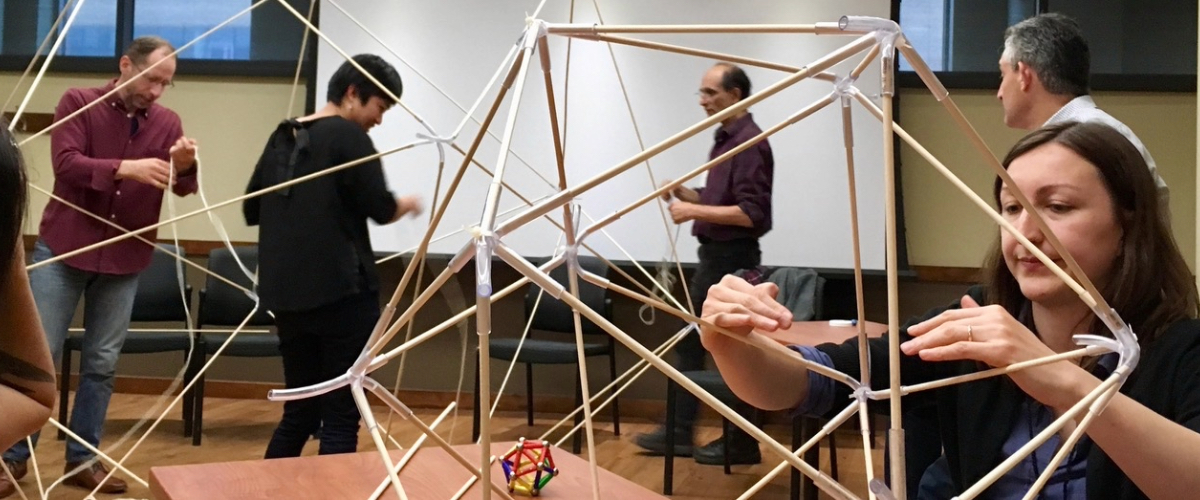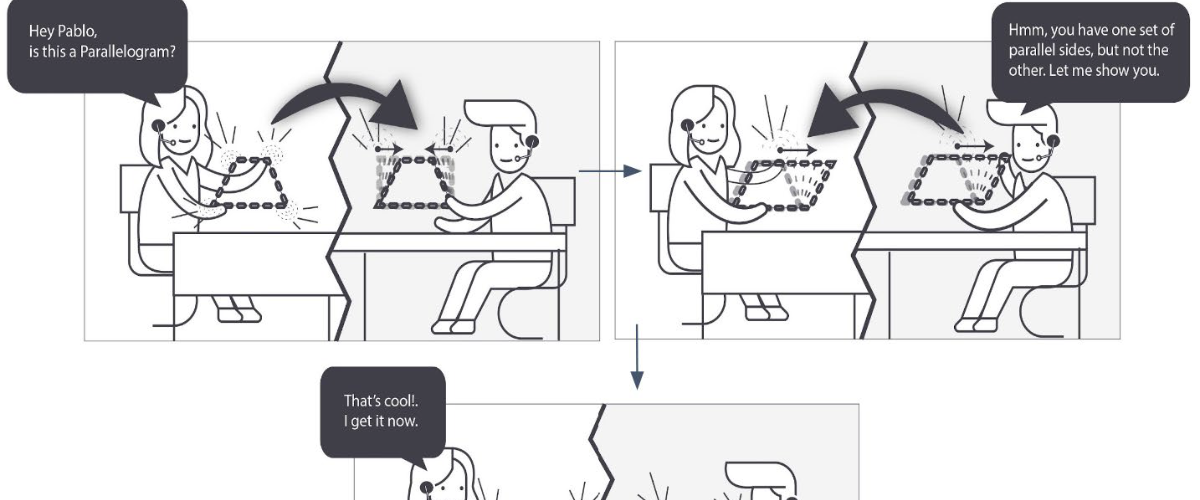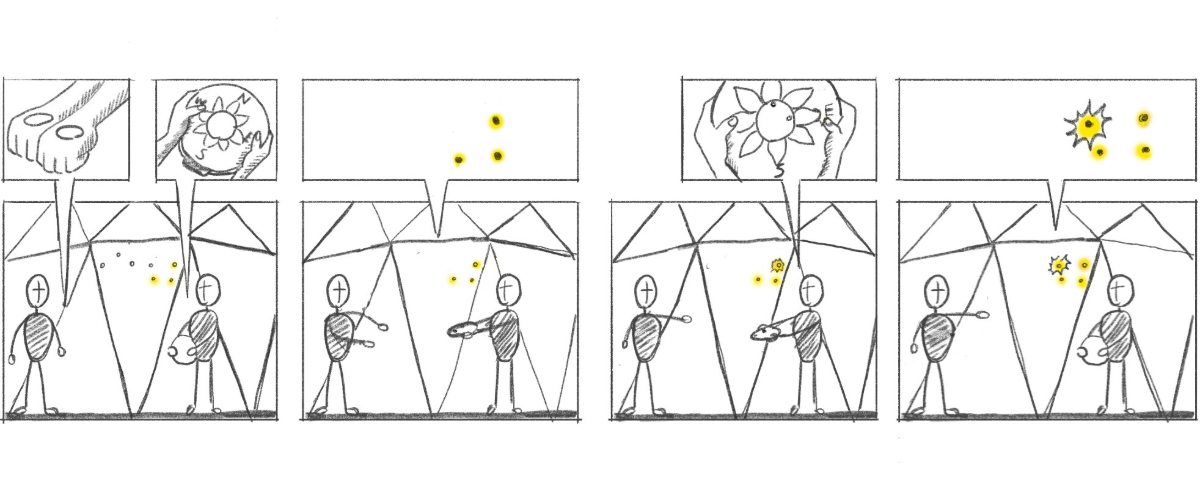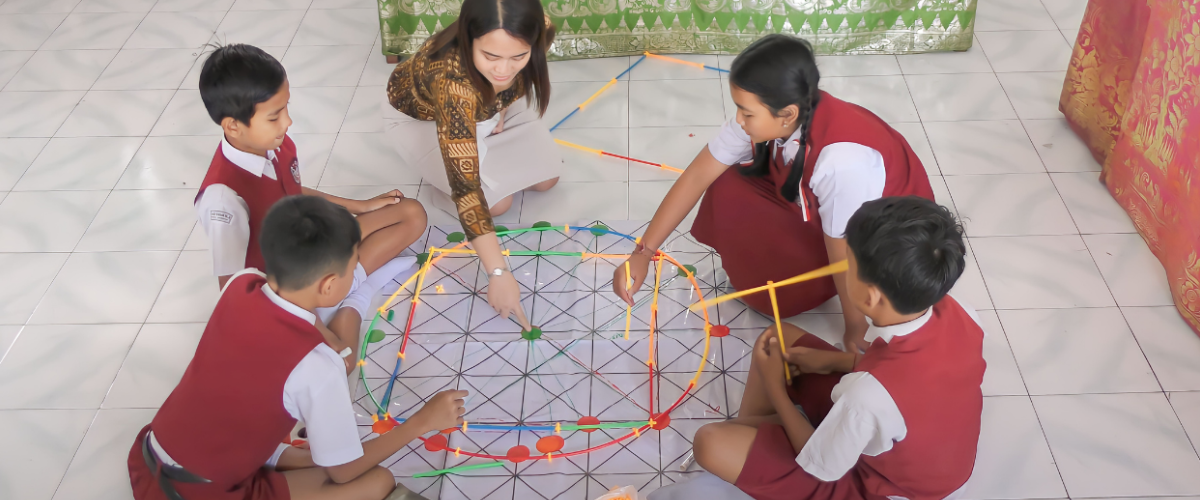
The Embodied Design Research Laboratory (EDRL) was established in the Fall of 2005, when Dor Abrahamson joined the faculty of the Graduate School of Education at UC Berkeley. The lab is home to all our research and mentoring.
EDRL works around a theoretical strain (embodied cognition), a methodological line (design-based research), and a disciplinary emphasis (mathematics). We host the full cycle of design-research projects that are geared to contribute to theory and practice of multi-modal mathematical learning and reasoning as well as to design theory.
At EDRL, we:
- (a) design, build, and field-test learning environments that foster K-16 students’ inquiry-based learning of targeted mathematical concepts;
- (b) develop methodologies that enable us to elicit the data we need for inquiring into questions that go beyond “Did it work?” to exploring how and why things work;
- (c) analyze data of students’ actions, multimodal utterance, and artifacts to contextualize discussions of relations among objects, media, activities, perception, and reasoning; and
- (d) draw on relevant literature, such as work pertaining to design frameworks, to improve our designs, enrich our interpretation of data, and articulate and present our work such that it addresses the needs and interests of a broad community of education researchers and practitioners.
The lab as well as the broader research group are safe places for learning together, and we strive to foster an ambience of trust, where it is fine and even expected to ask “naive” questions and certainly to question authority. Members are encouraged to bring to the table their own projects, even such that were designed to fulfill a requirement of another course, because other members will learn greatly by attending to and responding to such succinct presentations. During lab meetings: (a) students share and discuss their own work, at all stages of progress, whether to brainstorm, design a research study, recruit help, show challenging data, receive constructive criticism on a manuscript or feedback on a poster, or practice a conference presentation; also, (b) we spearhead lab-specific projects, on which several or all members are collaborating. So we discuss research issues ranging from the mundane to the scholarly. More on our ecology, vision, and practice (or, “We’re actually rather nice — if somewhat nerdy — people with largely altruistic intentions, not only intellectual predilections”):
Our laboratory is a diverse collective of undergraduate students, mentor graduate students, and a member of faculty. The research group has roughly the same number of female and male members, and we hail from just about as many countries as we number. Weekly meetings are focused, caffeinated, ebullient, at times Rabelaisian yet always safe, patient, and equitable. We listen closely to each other and celebrate intellectual challenge. A thematic emphasis of our lab lore is that all projects have moved forward when our novices questioned our assumptions (e.g., “The Kelly Challenge,” “The Joey Challenge,” etc.). We respect intellectual ownership, support each other in carrying out our studies, and practice measured pride in our academic affiliations. We often host international scholars—undergraduates thru celebrated researchers—who take interest in our work and sojourn with us for a day, a month, or a whole academic year. We collaborate with university and system-wide causes by including in our lab several Undergraduate Research Apprenticeship Program scholars (URAP), and every summer we work with students from the University of California’s CalTeach program and/or UC Berkeley’s NERDS and LEADS programs for the promotion of scholars from minorities that are under-represented in the STEM fields. For example, a recent core project member was a Fellow in the NSF-funded program CAMP (California Alliance for Minority Participation in Science, Engineering, and Mathematics).
We are dedicated to training the next generation of learning scientists by conducting collaborative research on mathematical cognition and instruction. We aim to develop and refine theoretical models in dialogue with the emerging literature as well as highest-quality, affordable design exemplars and design frameworks deployable in both formal and informal settings, in the US and beyond. We proactively disseminate our work (inter)nationally via publishing in leading journals, participating in conferences and workshops, convening with visiting scholars, consulting, and appearing in the media. Our analytic focus on effective instructional practices, involvement in the design and instruction of pre-service PD curriculum, and classroom experiences all shape our concerted capacity to channel future-learning efforts into viable lessons aligned with common-core state standards. At the same time, our critical analysis of assumptions underlying prevalent pedagogical perspectives feeds into a vision of transforming what is valued as efficacious literacy vis-a-vis emerging technologies.





